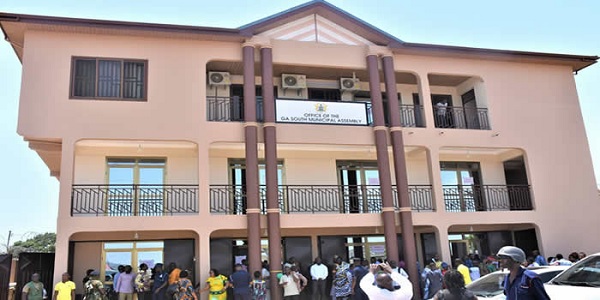The Ministry of Local Government and Rural Development (MLGRD) has organised a sensitisation workshop for key players in the district assemblies in the Ashanti, Western and Western North regions on the Ghana’s Productive Safety Net Project (GPSNP).
The GPSNP is a successor project to the Ghana Social Opportunity project being implemented in 80 assemblies.
It is to strengthen and improve social safety net and productive inclusion of the poor and vulnerable.
The programme is designed to contribute to poverty reduction, job creation, climate resilient and enhance the socio-economic lives of the less privileged in Ghana's communities.
Assets of the poor
The Ashanti Regional Minister, Mr Simon Osei-Mensah, said the project was to improve the assets of the poor which included both productive assets such as livestock, tools, household enterprise and human capital.
He said the project directly contributed to the achievement of the goals of Ghana’s “co-ordinated programme of economic and social development policies” (2017-2024), as well as the agenda for jobs creation, prosperity and equal opportunity for all (2018-2021).
“By this, the project is fully aligned with the government’s Ghana Beyond Aid Agenda," he said.
Mr Osei-Mensah entreated the assemblies to fully embrace the project and adhere to the key measures that would be put in place to ensure its success.
Beneficiaries
The Deputy Minister of Local Government and Rural Development, Mr Collins Ntim, said the ministry was collaborating with the Ministry of Gender, Children and Social Protection, as well as the World Bank to commence the processes leading to the preparation of the new GPSNP.
He said “the project will directly benefit the poorest households in all the regions in the country including 25,000 individuals who will benefit through the productive inclusion programme, 30,000 beneficiaries who will benefit from the labour-intensive public works, 350,000 households who will also benefit from the Livelihood Empowerment Against Poverty (LEAP) cash transfer programme and about 200 small dams and dugouts will also be constructed,” he said.
He said the project would harness investment in the social protection sector to support households to better access services that would promote their productivity and improve their access to jobs.
The deputy minister entreated all District Chief Executives to exhibit a high sense of leadership and cooperation.

